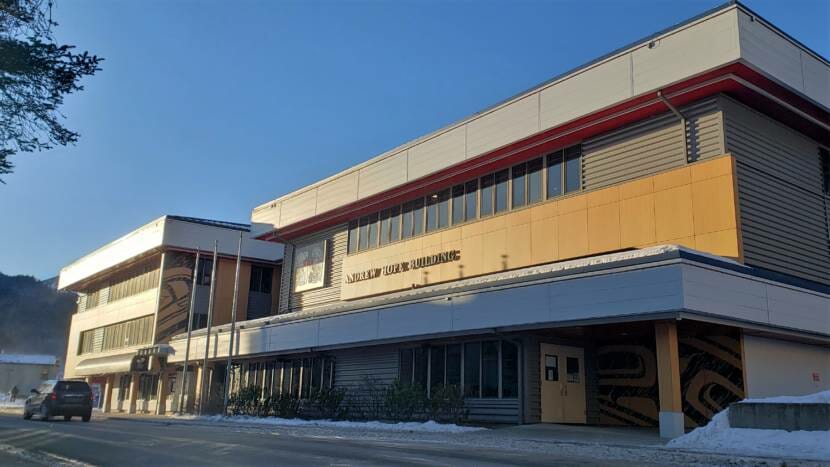
The City and Borough of Juneau will collaborate with the Central Council of the Tlingit & Haida Indian Tribes of Alaska on issues of public safety and composting moving forward.
The details of the partnership are outlined in two agreements passed unanimously by the Juneau Assembly Monday night.
The city and the regional tribe of Southeast already offer many of the same public services in Juneau. For instance, Tlingit and Haida operates its own public safety department and tribal emergency operations center in Lemon Creek.
After this summer’s record-breaking glacial outburst flood, the tribe worked with the city on clean-up and recovery. According to the tribe’s Environmental Program Manager Raymond Paddock III, the new agreements basically pave the way for more collaboration like that in the future.
“This agreement formalizes and strengthens the government-to-government relationship between Tlingit and Haida and the City and Borough of Juneau, recognizing both as key partners in addressing solid waste challenges and public safety for our shared community,” Paddock said during testimony he gave on Monday.
The public safety agreement commits the city and the tribe to annual meetings about public safety priorities and projects. That will likely include planning together for future glacial outburst floods. They’ll also participate in an annual training exercise to practice emergency response together.
The agreement on solid waste comes as both the city and the tribe have been awarded significant federal funding to support composting projects over the last couple of years.
Both are in the very early stages of establishing composting operations, but Paddock said working with the city will be the most effective way to tackle shared community waste challenges, especially as the local landfill fills up.
“Through collaboration, we aim to promote sustainable waste management practices that will positively impact Juneau and serve as a model for other communities in Southeast Alaska, enhancing regional resilienceship and environmental stewardship,” Paddock said. “And lastly, I want to say that there is enough waste to go around.”
The owner of local private business Juneau Composts has expressed concern that establishing government-run composting facilities could put her out of business.
Moving forward, both the city and the tribe will maintain independent finances and operations, but they hope these agreements will create more efficient and impactful public safety and solid waste projects for Juneau.
